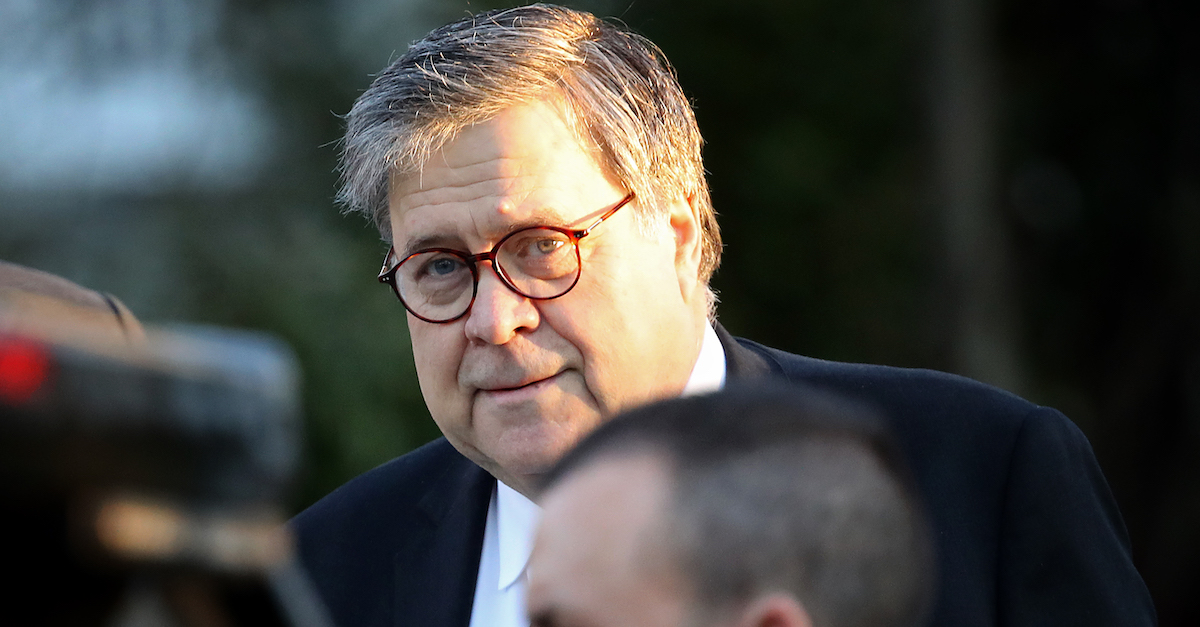
Attorney General William Barr’s press conference on Thursday revealed few surprises. We already knew that Russia tried to interfere with the 2016 presidential election, and that there was no evidence uncovered that Trump colluded. We knew that the Special Counsel’s report will be released shortly, and that it’ll be redacted. And of course, we knew that the DOJ isn’t planning to prosecute Trump for obstruction of justice. Barr did, however, pull back the curtain on the DOJ’s decision-making process on the obstruction issue.
- Barr admitted that it’s all about intent.
If President Trump had obstructed justice, he’d have undertaken some kind of action (altering or destroying documents, hiding evidence, firing the FBI director, to list some examples) with “corrupt intent.” This means that a successful defense would either deny having undertaken an action, or would deny a wrongful motive.
Barr’s admission that the Mueller report raised “ten episodes” of questionable behavior potentially related to obstruction is important. It means that a Trump defense on the obstruction issue will not amount to “I didn’t do anything,” but rather, “I may have done something, but it was for a good reason.”
- Barr and Mueller disagree about what obstruction of justice means, but Barr deferred to Mueller.
Barr dodged a question about whether the DOJ’s no-obstruction determination was the result of its taking a position on the hotly-debated question of presidential immunity, and admitted he and Robert Mueller disagreed about “legal theories” related to obstruction. Barr was unwilling, however, to allow his legal analysis to bear full responsibility for the decision and explained, “we did not rely solely on that in making our decision. Instead we accepted the Special Counsel’s legal framework for purposes of our analysis and evaluated our evidence as presented by the Special Counsel in reaching our conclusions.”
In other words, Barr isn’t going to fight over how obstruction works. He’ll go with Mueller’s take on it, because he’s confident that the facts don’t add up to Trump obstruction no matter whose theory we use.
- Barr was inexplicably satisfied with an obstruction investigation that left out the single most important piece of evidence.
The best evidence about what Trump’s motivation was for any of the “10 episodes” would obviously have been a statement from Trump himself. While evidence of intent can be (and often is) inferred during criminal prosecutions, it would be a lot more direct to go straight to the source. Sure, there’s always the reality that Trump could lie about his intent, but that is a risk in every investigation.
In any criminal investigation, but even more so in an investigation about intent, sworn testimony from the investigation’s target is critically valuable. Barr declared that despite the hardships Trump endured as a result of the investigation, Trump cooperated, directed senior aides to testify freely, and asserted no privilege. While potentially true, none of that excuses Trump’s failure to participate directly in the investigation, nor does it explain the DOJ’s apparent failure to Trump’s absence.
- Barr showed his hand on why Trump acted as he did.
Barr teed up a Trump defense just in case any of those “10 episodes” seem difficult to explain. In his presser, Barr warned that it is “important to bear in mind the context” of the early days of Trump’s presidency. During that time, there was, “relentless speculation” about the president’s personal culpability. And as Trump attended to the demands of his office, he was plagued by the stresses of a looming investigation. Barr reminded us that it’s not just his say-so, but that, “There is substantial evidence to show that the president was frustrated and angered by his sincere belief that the investigation was undermining [Trump’s] presidency, fueled by illegal leaks.”
So there it is. Trump’s intent was to protect his administration from fallout caused by illegal wrongdoers– a noble, far from “corrupt” motive.
- Barr floated a ridiculous theory on intent.
To hear Barr tell it, Trump’s cooperation with the Mueller investigation is proof positive of Trump’s lack of corrupt intent. While describing Trump’s cooperation in offering up documents and witnesses, Barr declared, “This evidence of non-corrupt motives weighs heavily against any allegation of ‘corrupt intent’ to obstruct the investigation.”
The problem with Barr’s logic is one of timing. A person’s motive at the time he undertakes a particular action is not properly inferred from what that person does later, when that action is retroactively investigated. Sure, a knowingly guilty person will sometimes resist cooperating with an investigation – but cooperation itself hardly proves that there had never been criminal intent. Reliable evidence of a person’s state of mind stems from sources contemporaneous with the person’s actions. While Trump’s cooperation may be meaningful in some way, it doesn’t do much to explain actions that preceded the investigation’s very existence.
[Image via Win McNamee/Getty Images]
This is an opinion piece. The views expressed in this article are those of just the author.